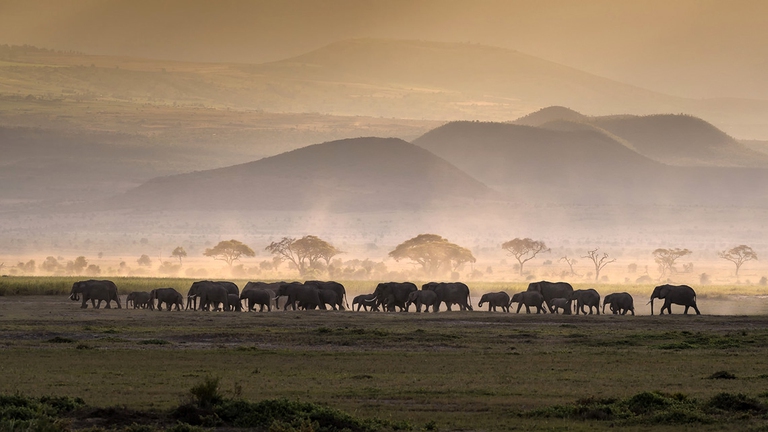
A report by Ember explains that in 2025 electricity generation from renewables (solar, wind and hydropower) surpassed that from fossil fuel sources.
The worst case of elephant poaching in African history took place very close to a wildlife sanctuary in Botswana, which was supposed to be their last safe haven.
Botswana was considered the last safe haven for African elephants (Loxodonta Africana), a place where these animals could live and reproduce without being constantly threatened by poachers, thanks to effective national laws protecting them. Nevertheless, the country was the scene of the largest single known elephant massacre ever to take place in Africa. A group of researchers from the Botswana-based NGO Elephants Without Borders identified the carcasses of 87 animals near the Okavango Delta wildlife sanctuary during an aerial survey.
According to research carried out by International Union for Conservation of Nature (IUCN), the African elephant population is continuously dropping and currently counts only 415,000 specimens: numbers have decreased by 20 per cent between 2006 and 2015 mostly due to poaching for their precious tusks. Botswana is home to the largest elephant population in the world with more than 130,000 specimens. The animals found dead there were killed a few weeks ago for their ivory.
Dozens of #elephants killed near Botswana wildlife sanctuary! Elephants Without Borders, is conducting an aerial survey, The scale of poaching deaths is largest seen in Africa and coincides with Botswana’s anti-poaching unit being disarmed. https://t.co/dNQYksJwMt #wildlifecrime pic.twitter.com/4lCBD5qzxo
— Global Elephants (@GlobalElephants) 3 settembre 2018
“I’m shocked, I’m completely astounded. The scale of elephant poaching is by far the largest I’ve seen or read about anywhere in Africa to date,” Mike Chase, biologist from Elephants Without Borders said. As stated earlier, elephants considered Botswana a safe place, and animals originally coming from Angola, Namibia and Zambia have stationed themselves within the country’s borders. Poaching has been a rare occurrence until now thanks to well organised and well equipped anti-poaching units.
Nevertheless, the government made cuts to these in May, following the election of the new president Mokgweetsi Masisi, who disarmed the Department of Wildlife and National Parks without giving any explanation. This, in combination with the decline of elephant populations elsewhere, may have led poachers to violate what was supposed to be the last elephant sanctuary.
“This tragic new development in Botswana demonstrates once more the limits of actions against poachers on the ground, which are absolutely necessary but not sufficient in tackling the problem,” Andrea Crosta, who founded Elephant Action League to fight the illegal wildlife trade by deploying strategies used in the intelligence field, told us. “This is due to the elevated number of potential poachers employed by traffickers, widespread poverty and African governments’ difficult in acting strategically”.
Read more: Andrea Crosta. The man who uses his intelligence network to prevent poaching and save endangered animals
“Tourism connected to wildlife is very important for our economy, our jobs and our international reputation,” Mike Chase explained. The slaughter of elephants, deeply intelligent ancient creatures we don’t yet fully understand, will also have dire consequences on African ecosystems and economy.
Siamo anche su WhatsApp. Segui il canale ufficiale LifeGate per restare aggiornata, aggiornato sulle ultime notizie e sulle nostre attività.
![]()
Quest'opera è distribuita con Licenza Creative Commons Attribuzione - Non commerciale - Non opere derivate 4.0 Internazionale.
A report by Ember explains that in 2025 electricity generation from renewables (solar, wind and hydropower) surpassed that from fossil fuel sources.
The Tyler Prize, considered the “Nobel Prize for the Environment,” has been awarded to Toby Kiers, an American biologist working in Amsterdam.
Belgium is one of the countries most exposed to climate change. Dune–dikes are a solution to curb sea-level rise.
Between October 2024 and September 2025, the average temperature in the Arctic was 1.6 degrees Celsius higher than during the 1991–2020 period.
Undeclared conflicts of interest, paid authors, lack of transparency: one of the most cited studies on glyphosate, published in 2000, has been retracted.
The Copernicus service has released data for the first eleven months of 2025: global warming is set to come close to last year’s record.
The European Council and Parliament have reached an agreement on the European Commission’s proposal to deregulate new GMOs. But farming, organic agriculture, and environmental organizations are calling for it to be stopped.
The world’s second-largest producer has taken a historic decision. However, farms will have until 2034 to shut down.
A Greenpeace report denounces Russia’s political and economic model: a nexus of extractivism, authoritarianism and war that is destroying the environment, with serious repercussions for the global ecosystem.








